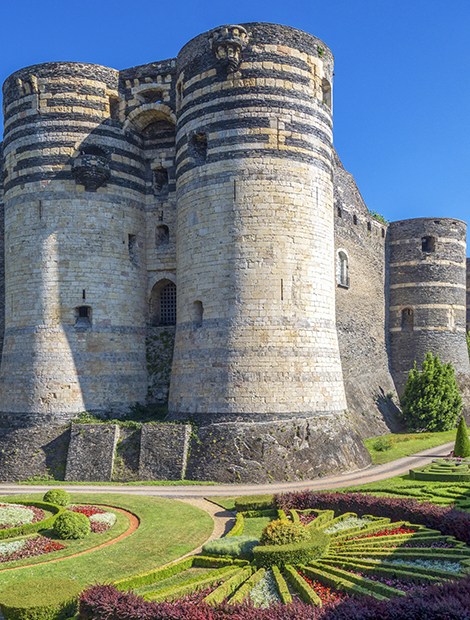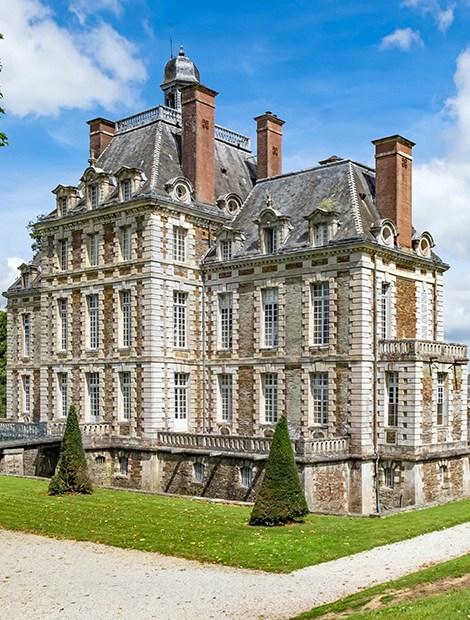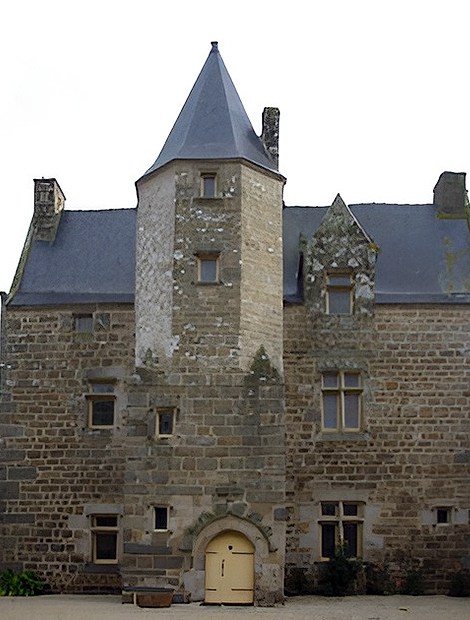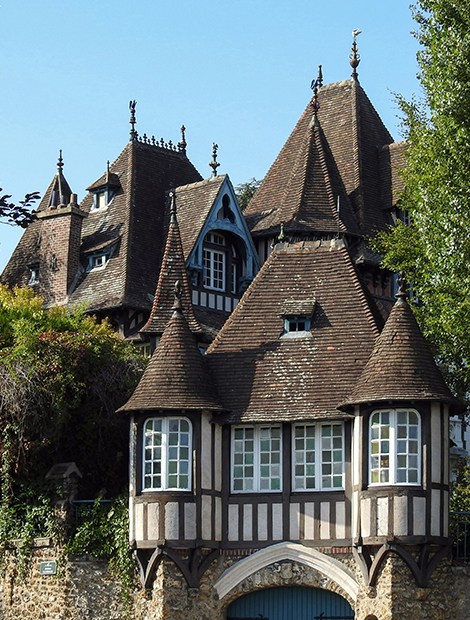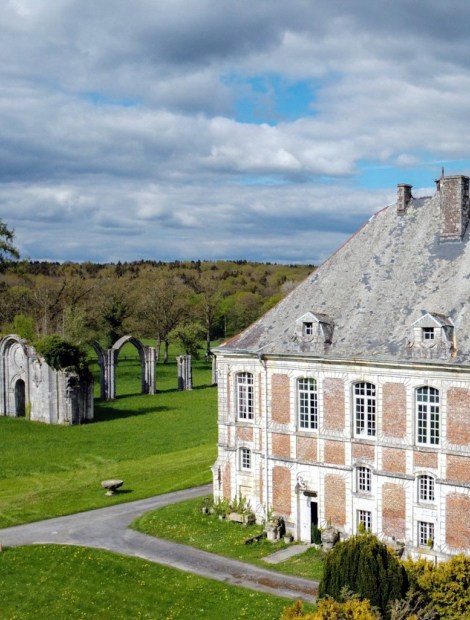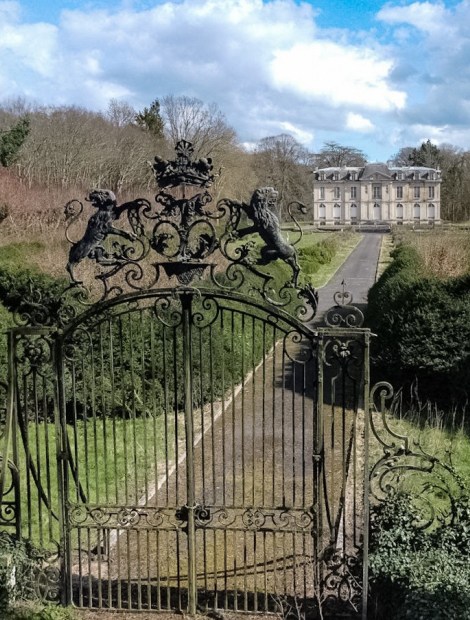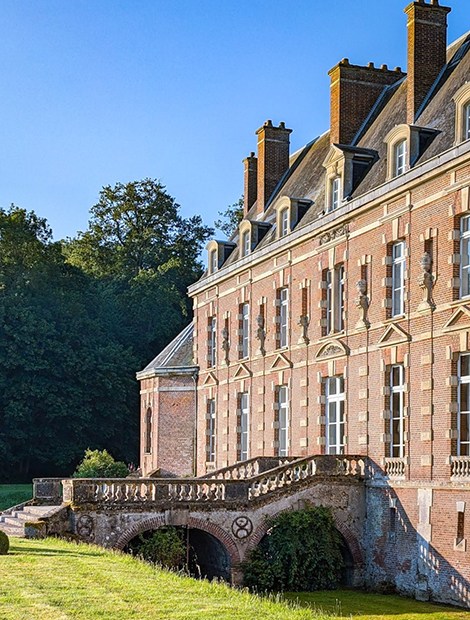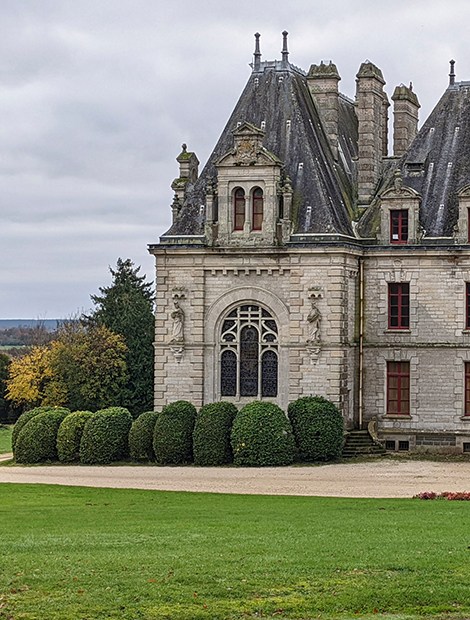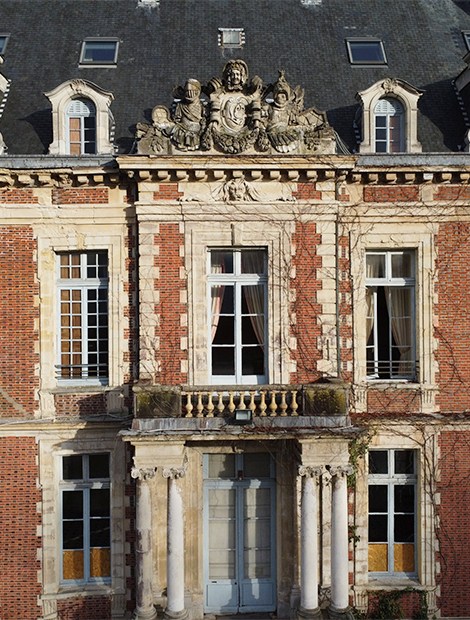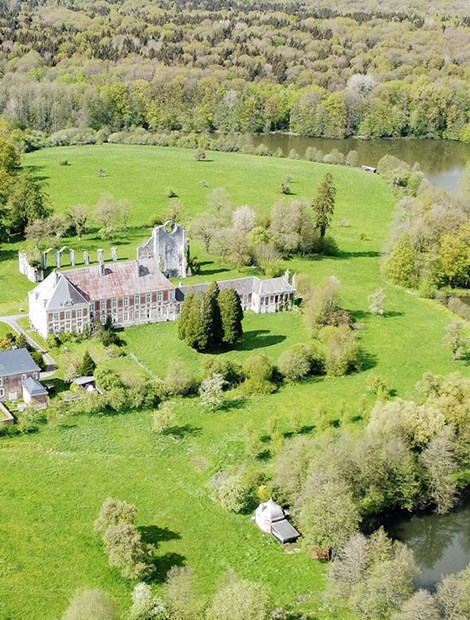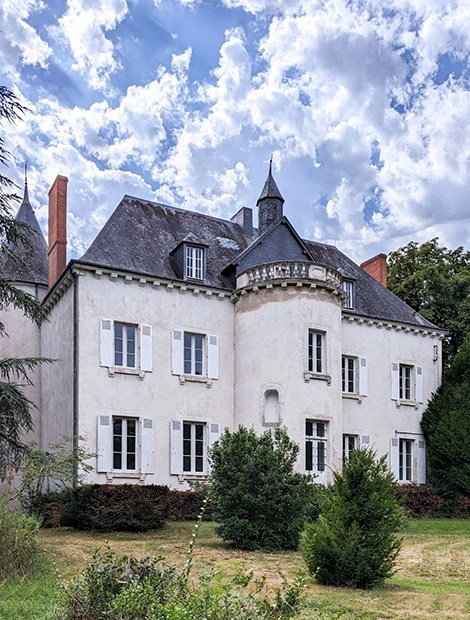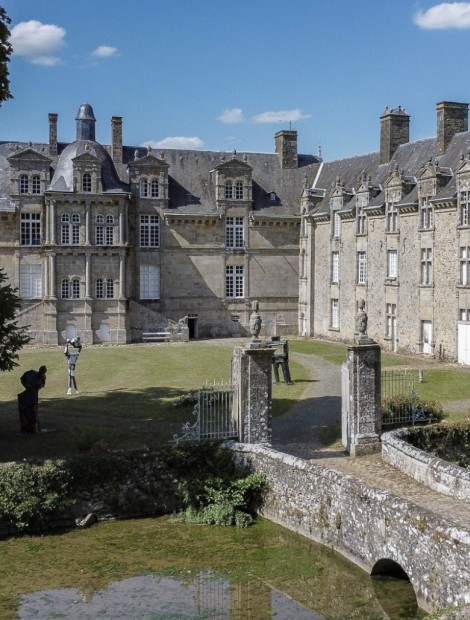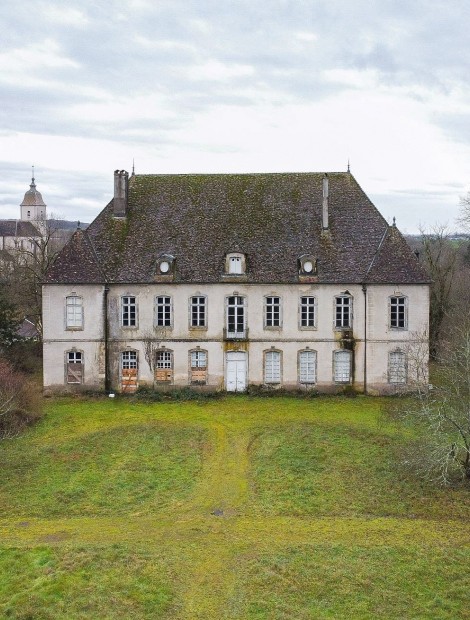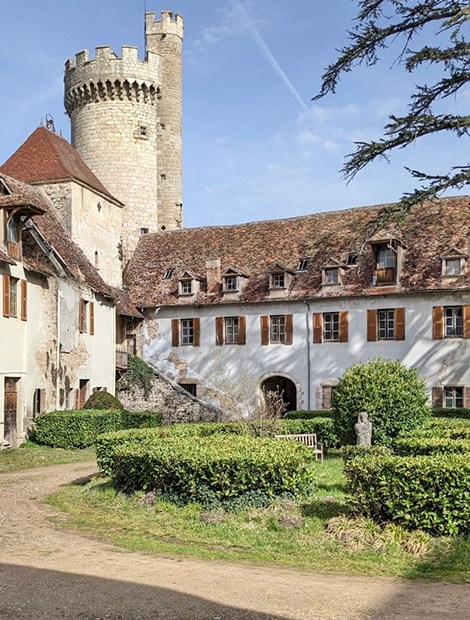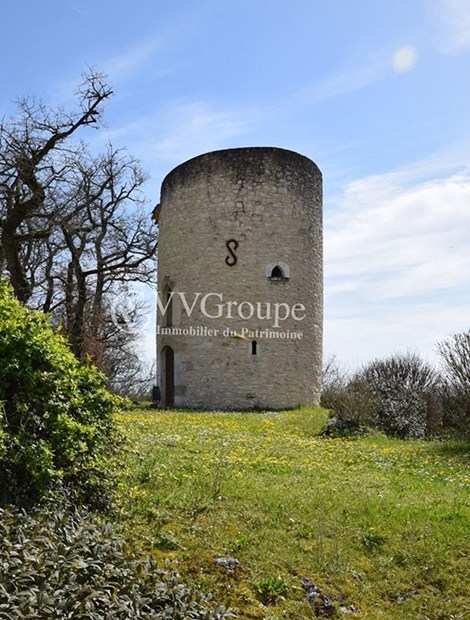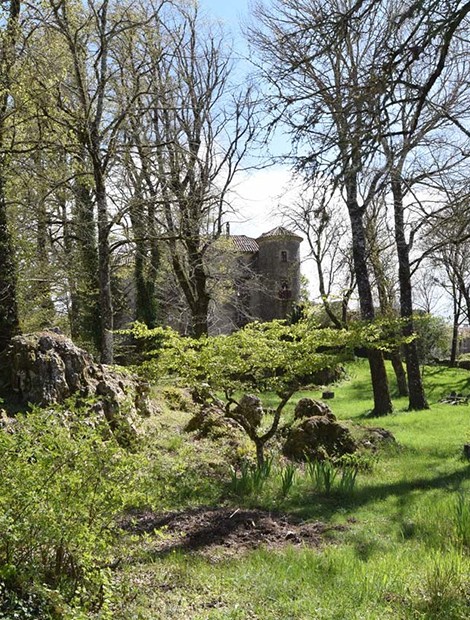-
Buy
Character properties overviewEuropean castles and manors
- United Kingdom
- All regions
- England
- Scotland
- Wales
- Northern Ireland
- Overseas
- Poland
- Czech Republic
- Italy
- France
- Germany
- Spain
- Austria
- Latvia
- Slovakia
- All countries
Popular overseas countries -
Sell
Free Single listingsSelling overseasPublish multiple listings
Find castle agents
Entrust the sale of your historic property to capable hands. REALPORTICO connects you with selected partners tailored to your specific needs, offering exceptional expertise in selling historic properties in the United Kingdom or abroad. You have the freedom to choose whom to collaborate with. Our presentation centered on heritage properties and supported by a local and global network, reaches a significantly broader audience compared to everyday real estate sources. - Portico Secrets Secrets
- E-Mail alert
-
Extras
Extras
Character properties for sale: Vineyard France
Read moreFrom Château to Moulin, from Northern France to Occitania: France's Property types and regions
France, the magnificent country of a thousand facets in the heart of Europe. A vibrant mosaic of stunning landscapes, which could not be more contrasting and yet form a cohesive whole from north to south. Each region is much more than just a geographical space on the European map – it tells its own story that defines the essence and soul of France.
Impressive Landscapes from Normandy to the Côte d'Azur
Starting with the chalk cliffs on the rugged coasts of Normandy and the prehistoric menhirs in the mystical nature of Brittany, moving on to the gentle hills of Champagne and Burgundy, where lush vineyards, interspersed with picturesque villages and historic abbeys, stretch to the horizon. Continuing over the majestic peaks of the Alps, crisscrossed with idyllic valleys and crystal-clear mountain lakes. Down into the deep gorges of the Ardèche and up again to the lavender fields on the Plateau de Valensole. There, awaits the paradise of Provence, leading south into the wild wetlands of the Camargue with its seemingly endless lonely beaches. It is the home of France's flamingos and white horses. After traversing the green river valleys of the Dordogne with its medieval castles and dense forests, the snow-capped rugged peaks of the Pyrenees beckon on the horizon, guiding the way towards the Mediterranean and the glittering shores of the Côte d'Azur.
Tradition and Modernity Combined: France's Architecture and Culture
Tradition and modernity merge in France in a unique way. The incomparable Paris, city of love and fashion, is one of the most important financial centers in the European Union and ranks third in the number of company headquarters, behind Beijing and Tokyo, even before London and New York. Contrasts that seamlessly blend together. While the cathedrals of Chartres and Reims speak of the spiritual depth of past eras, contemporary architectural wonders like the Centre Pompidou or the Fondation Louis Vuitton rise as symbols of the nation's unbroken creativity and spirit of innovation.
Art, Cuisine and Joy of Life at the Highest Level
France is the country of art and art lovers, literature and literary figures, philosophy and philosophers. The works of French artists and thinkers have spread its fame across the globe, but it would not be France if sensual pleasures did not hold as much value as intellectual treasures … the unparalleled elegance of a Bordeaux wine on the tongue, the wonderful aroma of freshly baked baguette wafting from the tiny bakery early in the morning through the narrow streets of a French town, or the golden light dancing over the rooftops and steps of Montmartre at sunset … all these pleasures for the senses can become deeply embedded in a person's memory, to be recalled in moments of longing.
Savoir-vivre: The Heritage and Way of Life of France
The history of France is as glorious as it is painful. From the battles of Roman times to the shaping era of the French Revolution to the tragic chapters of the world wars. Yet, it seems the French continually find strength in their past and reinvent themselves while never forgetting their roots in European history. The motto Liberty, Equality, Fraternity, the slogan of the French Republic, is rooted in the slogans of the great Revolution of 1789.
France is also a place of encounters – between people, ideas and cultures. Those who visit or choose to live there not only discover a country but also a way of life. A way to enjoy life, as the French celebrate the art of the proverbial Savoir-vivre in their own unique way. Whether in the glamorous street cafés of Paris, on the lively small marketplaces of Provence or at raucous parties in Gascony – they know how to appreciate and celebrate life in all its facets.
Alphonse de Lamartine masterfully captures France’s emotional resonance, its landscapes and the inexorable flow of life in his poem Le Lac
.
Ainsi, toujours poussés vers de nouveaux rivages, Dans la nuit éternelle emportés sans retour, Ne pourrons-nous jamais sur l'océan des âges Jeter l'ancre un seul jour?
So, forever driven to new shores, transported into the eternal night of no return, can we never drop anchor for a single day on the ocean of time?
Importance of historic properties in France
The abundance and variety of historic properties in France is truly unique. Historic buildings in France are not only architectural masterpieces but also living witnesses of the nation's rich cultural heritage.
Who doesn't love the impressive Châteaux that continue to shape the landscapes of all regions in France? They are not only of great tourist significance but also attract the interest of both local and international investors. In an international comparison, the purchase prices for Châteaux in France remain at a moderate level.
Castles in need of restoration can be quite affordable. Some intriguing renovation projects by ambitious young families with skilled craftsmanship and a vision to create a unique living space are both grand and inspiring. In addition to these properties, the market also offers stunning castles in excellent condition and prime locations.
Manoirs, the rural French manor houses from various eras, not only preserve the charm of bygone times but also convey the historical significance of agricultural traditions in France. Surrounded by expansive lands, they today offer exclusive retreats with a special connection to nature.
The large, rural historic estates, such as Domaines that extend over many hectares, are coveted properties for vineyards, luxurious boutique hotels, or exceptional private residences.
Each of the character properties in France is a significant part of the historical heritage of the Grande Nation, and there are hardly any limits to the diversity of possible classic and modern usage concepts.
Other common real estate terms
Propriété – Estate, property
"Propriété" is understood as an overarching term for a property. The origin of the word lies in the Latin "proprietas," which means "ownership." It generally refers to an estate or ownership. The term is often used for representative and larger properties, including country houses, villas, castles or manors. It also applies to modern and luxurious properties. Strictly speaking, the term "propriété" emphasizes the ownership rights of the property, regardless of its type or function. However, in everyday language, it has established itself with the meaning of an estate.
Gîte – Guest house, vacation accommodation
A "Gîte" is a typically French guest and holiday accommodation, often located in rural areas and housed in renovated estates or other historic buildings. Travelers can typically expect a familial, authentic atmosphere with special charm. Gîtes offer comfortable, self-contained lodging, often run by the owners themselves.
When the term "Gîte à vendre" is found in real estate, these can be for sale separately or integrated into a larger property. For enthusiasts of historic properties in France, purchasing a Gîte can be an appealing way to preserve a piece of French history and share it with guests from around the world. Especially in popular regions where historic buildings often lie in picturesque settings, Gîtes offer interesting income potential.
Mas – small country house
The word Mas is used in French to describe the traditional rural farmhouse of Provence and southern France. Typically, these are robust stone-built houses with simple yet charming architecture. Nowadays, they often serve as retreats and oases of calm to enjoy the peaceful life in Provence and the beauty of nature. They are also still used for farming in connection with regional products such as olive oil, lavender, or wine.
Bastide – Big country house
A Bastide also refers to a southern French country house, similar to a Mas but typically larger and more fortified. They were designed in the 17th to 19th centuries as summer residences and country estates for wealthy families. Characteristic features include their symmetrical facades, larger garden areas, and an amount of land. Historically, the term Bastide is also used for fortified medieval villages or towns laid out in a grid plan.
Moulin – Mill
A Moulin is a historic mill, typically used for grinding grain from local agriculture into flour. These are sturdy buildings, constructed from rough stone, often located in picturesque settings on hills, by rivers, or near streams. They exude an authentic, rustic charm and are quite sought after as unique residences or holiday accommodations.
Pigeonnier – Pigeon tower
A Pigeonnier is a dovecote, a small, tower-like structure built for keeping pigeons. Pigeonniers can be found in the rural areas of Normandy, Dordogne, and Provence as part of larger estates. Of interest in the context of historic property types is that the dovecote symbolized wealth and status. The right to keep pigeons was formerly reserved for the nobility and wealthy landowners. Today, you can still find artistically designed examples that serve as small guest houses or studios, remaining a vibrant part of the region's history.
Buying a castle in France: Tips for buyers
Even though the range of châteaux and impressive historic estates in France is extensive and many properties on the market appear to offer good value for money, there are a few points that prospective buyers should bear in mind. Here are the most important ones:
- Find out about the property tax called "Taxe Foncière"
The Taxe Foncière is an annual property tax levied in France on property owners. It applies to all developable and developed land and varies significantly depending on the region and municipality and the type of property. The condition and classification of the property (e.g., as a “Monument Historique”) can also influence the tax burden. Knowing the amount of property tax is essential for realistically assessing long-term financial obligations.
In some cases, owners of historic properties may benefit from tax incentives if they undertake restoration work that contributes to preserving cultural heritage. This should also be clarified in advance.
- Monument protection requirements
When purchasing a "Monument Historique," restoration work must be carried out exclusively by specially certified companies. This should be considered regarding their availability (construction time) as well as for determining construction costs.
- Existing leases
Castles or other large estates are typically surrounded by very large plots and/or extensive lands. In France, it is common for these to be leased in part or even entirely to farmers who often pay only a nominal rent. These lease arrangements are designed for the long term and are difficult to terminate, which can limit opportunities for personal use.
- Community and network
Another practical tip is to actively network with a community of like-minded individuals. Many people involved in the restoration, remodeling, or renovation of historic properties share their experiences through words and images on social media platforms like Facebook or Instagram. This is a great way to establish valuable personal and professional connections.

